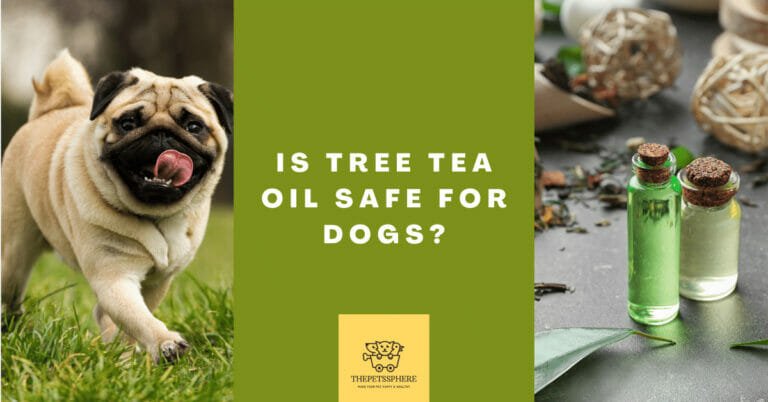Tea tree oil has been a part of many skincare products for humans and pets. It has antifungal, antiseptic, and antibacterial properties. While humans love to take care of their skin by mixing essential oils like tea tree with other mild products, your pet dog requires only a couple of pet-friendly stuff. None of the cosmetics are meant to be consumed by any pet, but on a slightly off chance – can dogs eat tea tree oil?
Can dogs eat tea tree oil?
No, dogs should not consume tea tree oil in any form. Even a tiny amount of this essential oil can be toxic for your dog.
Tea tree oil is an extract from the Melaleuca plant indigenous to Australia. Traditionally, the locals have been using this extract to treat various illnesses ranging from the common cold to infectious wounds. It contains the terpinene-4-ol compound, which is beneficial against viruses and bacteria.
Some pet owners might think that a beneficial essential oil like tea tree could do wonders for your dog from the inside. They might want to fix internal infections by feeding their dogs tea tree or pouring it into their ears and nose. We assure you that tea tree oil is nothing but bad news for your dog.
Hazards of tea tree oil for dogs
Essential oils in their purest form are harmful even for dogs. Experts advise that we use them after mixing with another mild product. For dogs, essential oils like tea tree bring about severe toxicity.
As little as 7 drops of tea tree oil can harm your dog. It can possibly lead to poisoning and may result in death. Even if your dog has not consumed any tea tree oil but has come in contact with it, the danger is still there as the oils get absorbed through the skin.
Symptoms of poisoning by tea tree oil are:
- Vomiting
- Liver failure
- Hypothermia
- Muscle weakness
- Lack of coordination
- Skin rashes
- Paralysis
- Coma
Treatment for tea tree poisoning
Unfortunately, there is no direct antidote for tea tree poisoning. Vets treat the dogs based on the symptoms they develop after consuming or coming in contact with tea tree oil.
Symptoms of tea tree poisoning show up within hours of exposure. Your vet may advise you to bathe the dogs immediately if tea tree oil has touched their skin. Intravenous fluids and other treatment methods are used for more severe symptoms like vomiting and liver failure.
Is tea tree oil always bad for dogs?
It can be argued that a dilute solution of tea tree oil may have benefits for dogs. The strongest point could be its presence in many pet-grooming products. While we don’t deny the benefits of this wonder oil, it is simply too much of a risk to try on our precious dogs.
Experts say that products with less than 2% tea tree oil as an ingredient are harmless for dogs. But even then, your dog must never eat any of it. It would be best to consult a vet first before introducing a tea tree oil-related product to your dog.
Related FAQs on dogs and tea tree oil!
Can I put tea tree oil in my dog’s water?
Dilute tea tree oil is generally safe for dogs but consuming it without proper directions from a vet can be extremely dangerous.
What happens if dogs lick tea tree oil?
If your dog has consumed tea tree oil in large amounts, you should immediately call a doctor and look for poisoning symptoms. Tea tree oil is dangerous for dogs and must be kept away from them.
Can you put tea tree oil on dogs for fleas?
Diluted tea tree oil can be used as a flea repellent for dogs. But it is important to check the water to oil ratio because an irregular balance can harm your dog.
Conclusion
Tea tree oil is a versatile product. It can be used to get healthy skin as well as to treat some illnesses. For your dog, however, tea tree oil must always be treated as a medicine, and that too, under the guidance of an expert. There is no way in which consuming tea tree oil is safe for dogs. Even external applications should be made after permission from the vet.

